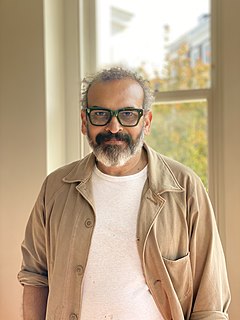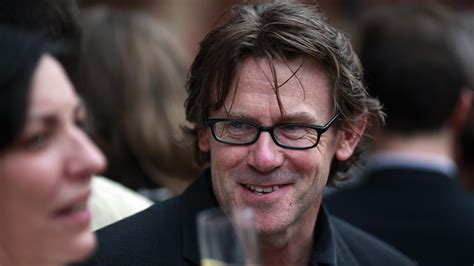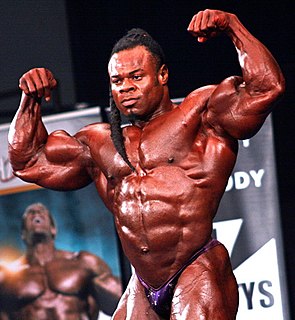A Quote by Michael Pollan
Cooking for yourself is the only sure way to take back control of your diet from the food scientists and food processors, and to guarantee you're eating real food rather than edible foodlike substances, with their unhealthy oils, high-fructose corn syrup, and surfeit of salt.
Related Quotes
One of the problems is that the US government supports unhealthy food and does very little to support healthy food. I mean, we subsidize high fructose corn syrup. We subsidize hydrogenated corn oil. We do not subsidize organic food. We subsidize four crops that are the building blocks of fast food. And you also have to work on access. We have food deserts in our cities. We know that the distance you live from a supplier of fresh produce is one of the best predictors of your health.
Something I learned when I was very young: with cooking, it doesn't matter where you are; you can always cook. You can end up in small village in Peru where somebody's cooking, take a spoon and taste it, and you might not be too sure what you're eating, but you can taste the soul in the food. That's what is beautiful with food.
Organic Oreos are not a health food. When Coca-Cola begins selling organic Coke, as it surely will, the company will have struck a blow for the environment perhaps, but not for our health. Most consumers automatically assume that the word "organic" is synomymous with health, but it makes no difference to your insulin metabolism if the high-fructose corn syrup in your soda is organic.
I spend so much money on food, just getting the food for me is a tremendous expense, so there's no way I could even think about paying for supplements. I think of all supplements as food derivative anyway, so If I can only choose between getting the food or the supplements I'd rather opt for the food.
A natural historian is somebody who looks at something in terms of its relationship to the rest of the natural world. You look at things ecologically. When you see a cow on a feedlot, you don't just see a cow; you see a cow that is eating certain food. You follow that food and that food takes you back to a corn field.
We kind of know that food is necessary to survive. But our ways of connecting with food have been, in many ways, taken over by capitalism - certainly taken over by the influence large corporations have on the way that we eat and the way that we think about food. That's why kids these days are more prepared to take nutritional advice from Ronald McDonald than they are from their parents or their teachers or from scientists. And particularly in urban areas, you'll see kids who honestly believe tomatoes come from the supermarket rather than from a plant.































